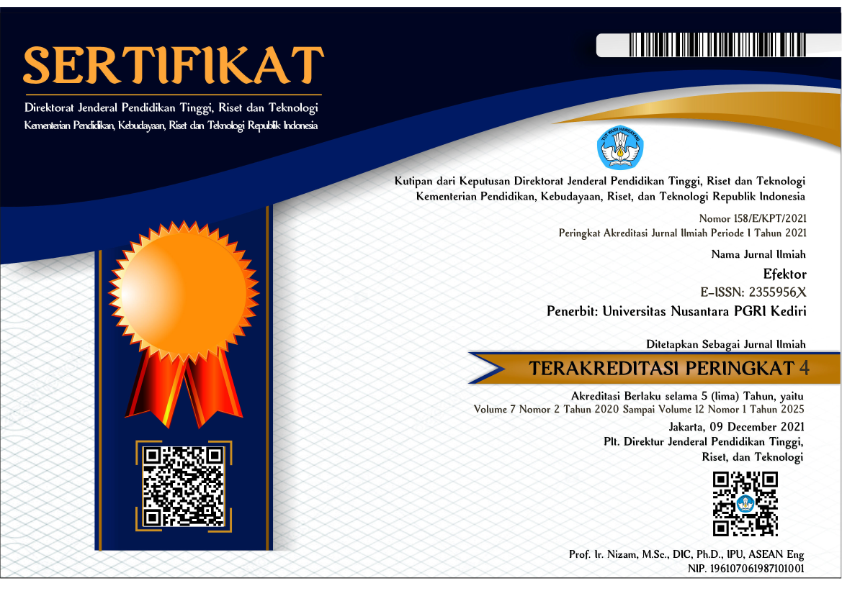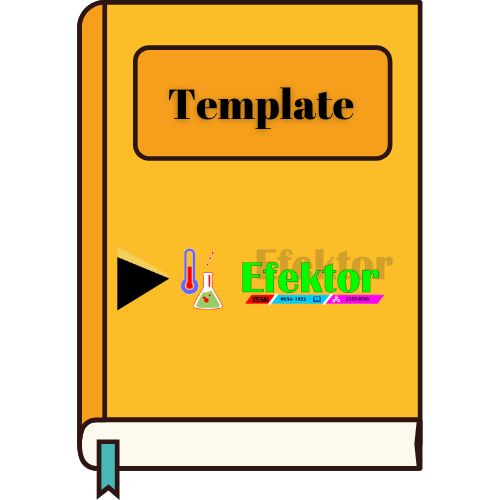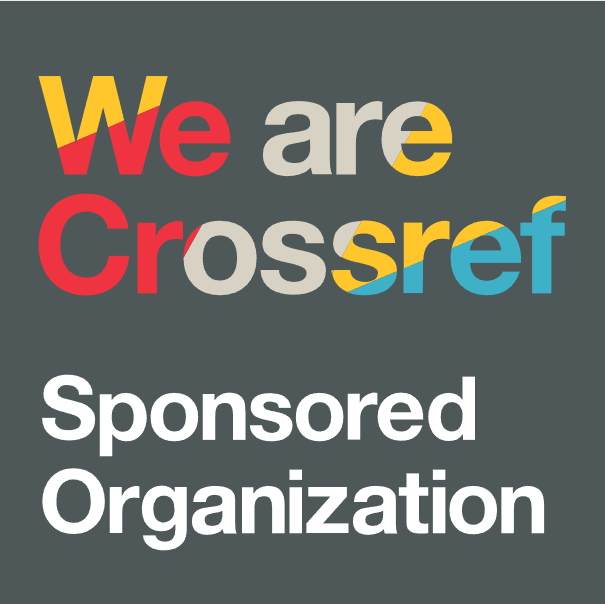Analisis Validasi Keterampilan Komunikasi Dan Argumentasi Siswa Biologi SMA Kelas XI MIPA
DOI:
https://doi.org/10.29407/e.v7i1.14340Keywords:
Communication and argumentation skillsAbstract
In Indonesia, 21st century education has 4 skills, namely creative thinking, critical thinking, collaboration, and communication skills. 21st Century skills are applied through the K-13 curriculum which requires students to be active in learning. It is expected that students will be able to have 21st century skills including communication and argumentation skills. Communication skills are important for students to help convey, listen and understand the meaning of knowledge, values, attitudes and attention. Argumentation skills are important for students to help them argue rationally, so that other people can accept these opinions. Instruments of communication and argumentation skills of students are made as a tool to measure student skills, and instrument of validation makes it easier to collect data with the results more complete, good, systematic and easy to process. The research instrument used was an instrument of communication skills and student argumentation. This study aims to determine the validation criteria of communication skills and argumentation instruments for biology students of XI MIPA high school students. The method used is descriptive method. Based on the data obtained from the research results showed that the level of validation based on the experts of communication skills and argumentation of biology students in class XI MIPA high school including the criteria of Good (B) with a value of 25, whereas according to practitioners the communication skills and argumentation instruments of class XI MIPA high school students including the criteria of Very Good (SB) with a value of 26.
References
Aedi, Nur. 2010. Instrumen Penelitian dan Pengumpulan data. ejournal.upi.edu. 5 (2) : 6 – 8.
Agusni, Hendika Prasetyo. 2017. Pengaruh Skill Argumentasi Menggunakan ModelPembelajaran Problem Based Learning (PBL)Terhadap Hasil Belajar Siswa SMP. Jurnal.fkip.unila.ac.id. 5 (10) :24 – 25.
Arikunto, Suharsimi. 2010. Prosedur Penelitian Pendekatan Praktik. Jakarta: Rineka Cipta.
Devi Cahya, N. D., Susanti, Elvi. dan Indriyanti, N. Y. 2018. Analisis Kemampuan Argumentasi Siswa SMA Pada Materi Larutan Penyangga. JKPK (Jurnal Kimia Dan Pendidikan Kimia). 3 (3) : 152 – 159.
Kemendikbud. 2016. Seminar Education Transformation and 21st Century Learning di Graha Utama. URL:https://www.kemdikbud.go.id/main/blog/2016/01/teknologiinfomasi-dan-komunikasipenting-untukproses-pembelajaran-masa kini.Diakses pada 6 Desember 2019
Marfuah. 2017. Meningkatkan Keterampilan Komunikasi Peserta Didik melalui Model Pembelajaran Kooperatif Tipe Jigsaw. Jurnal Pendidikan Ilmu Sosial (JPIS). 26 (2) : 149 – 159.
Noviyanti, M. 2017. Kemampuan Komunikasi Matematis Siswa SMP Kanisius Gayam Yogyakarta Kelas VII C dalam Konteks Operasi Hitung Bentuk Aljabar. Jurnal repository.usd.ac.id. 3 (2) : 50 – 60.
Retnawati, Heri. 2016. Analisis Kuantitatif Instrumen Penelitian (Panduan Peneliti, Mahasiswa, dan Psikometrian). Yogyakarta: Parama Publishing.
Riyani, Rizki., Maizora, Syafdi., dan Hanifah. 2017. Uji Validitas Pengembangan Tes Untuk Mengukur Kemampuan Pemahaman Relasional Pada Materi Persamaan Kuadrat Siswa Kelas VIII SMP. Jurnal Penelitian Pembelajaran Matematika Sekolah (JP2MS). 1 (1) : 1 – 6.
Wahyuni, Ari. 2013. Upaya Meningkatkan Kemampuan Argumentasi Siswa.respository.ump.ac.id. 7 (1) : 7 – 32.
Wardah, Faiqotul. 2018. Pengembangan Instrumen Authentic Assessment Berupa Penilaian Proyek Untuk Mengukur Kompetensi Keterampilan Siswa. Jurnalpai.uinsby.ac.id. 6 (2) : 38 – 40.
Downloads
Published
Issue
Section
License
Authors who publish with this journal agree to the following terms:
- Copyright on any article is retained by the author(s).
- The author grants the journal, the right of first publication with the work simultaneously licensed under a Creative Commons Attribution License that allows others to share the work with an acknowledgment of the work’s authorship and initial publication in this journal.
- Authors are able to enter into separate, additional contractual arrangements for the non-exclusive distribution of the journal’s published version of the work (e.g., post it to an institutional repository or publish it in a book), with an acknowledgment of its initial publication in this journal.
- Authors are permitted and encouraged to post their work online (e.g., in institutional repositories or on their website) prior to and during the submission process, as it can lead to productive exchanges, as well as earlier and greater citation of published work.
- The article and any associated published material is distributed under the Creative Commons Attribution-ShareAlike 4.0 International License













